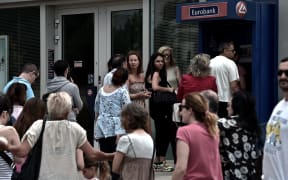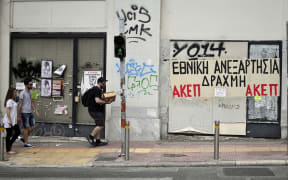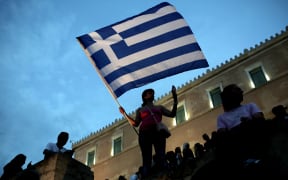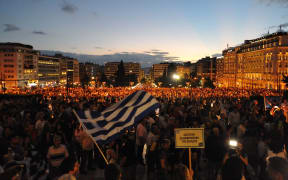A Greek government official has confirmed that banks will be closed until 6 July and ATMs will reopen late Monday with a daily withdrawal limit of €60.
Greek prime minister Alexis Tsipras has appealed for calm and reassured Greeks their bank deposits are safe.
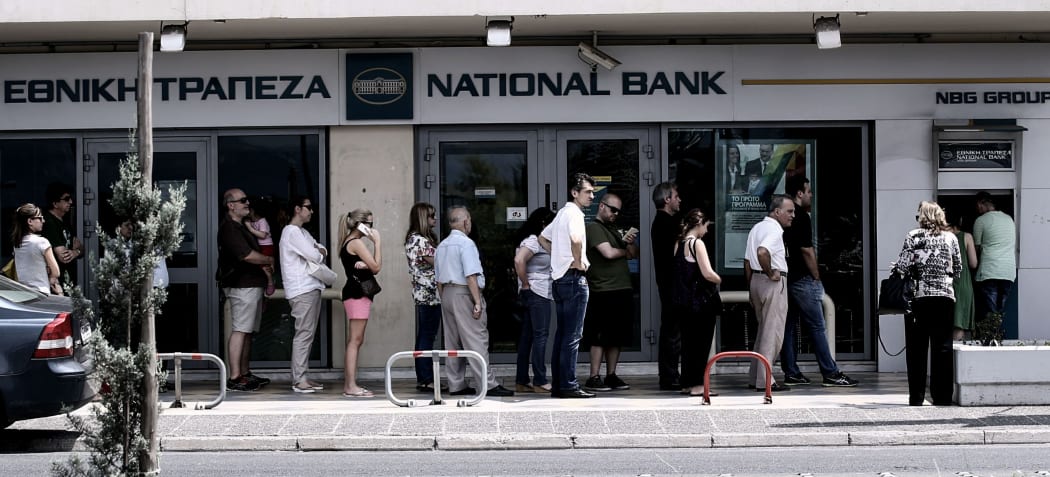
Queues formed at bank ATM machine over the weekend. Photo: AFP
He was speaking after the European Central Bank (ECB) said it was not increasing emergency funding to Greece and its cash-strapped banks.

Photo: AFP
Greece is due to make a €1.6bn payment to the International Monetary Fund (IMF) on Tuesday - the same day that its current bailout expires.
The ECB decision followed the failure of talks between Greece and eurozone countries about the bailout agreement.
Mr Tsipras did not give details of how long banks would stay shut, nor exactly what controls on capital would be imposed. Capital controls can include limiting the amount of money individuals and businesses can withdraw and restricting overseas transfers of cash.
The Greek stock market was also closed on Monday as part of measures designed to prevent fresh panic.
In the coming days, what's needed is patience and composure. The bank deposits of the Greek people are fully secure. #Greece
— Alexis Tsipras (@tsipras_eu) June 28, 2015
Queues continued to build outside some ATMs in Athens on Sunday, but cash was readily available at many of them.
Analysts said the decision not to raise the cap on aid to Greece, which increased the likelihood of bank closures and restrictions on cash withdrawals, in turn could eventually result in Greece leaving the euro.
The current ceiling for the ECB's emergency funding - Emergency Liquidity Assistance (ELA) - is €89bn. It is not clear if all that money has been disbursed.
Those funds are used by banks to provide cash to depositors who want their money back.
The Bank of Greece said it was making "huge efforts" to ensure the ATM machines remained stocked.
The German foreign ministry said tourists heading to Greece should take plenty of cash to avoid possible problems with local banks and some tourists said they were joining the ATM queues.
The ECB has kept the banks afloat in recent days with increases in its funding line, a form of overdraft with the euro zone's central bank system.
But on Sunday it said it would hold the funding line at the same level as Friday, despite the deposit outflows. The central bank said it was monitoring the situation and stood ready "to reconsider its decision."
There is growing opposition to the funding line because it would fall to the bloc's other members to pay if Greece were to leave the euro zone.
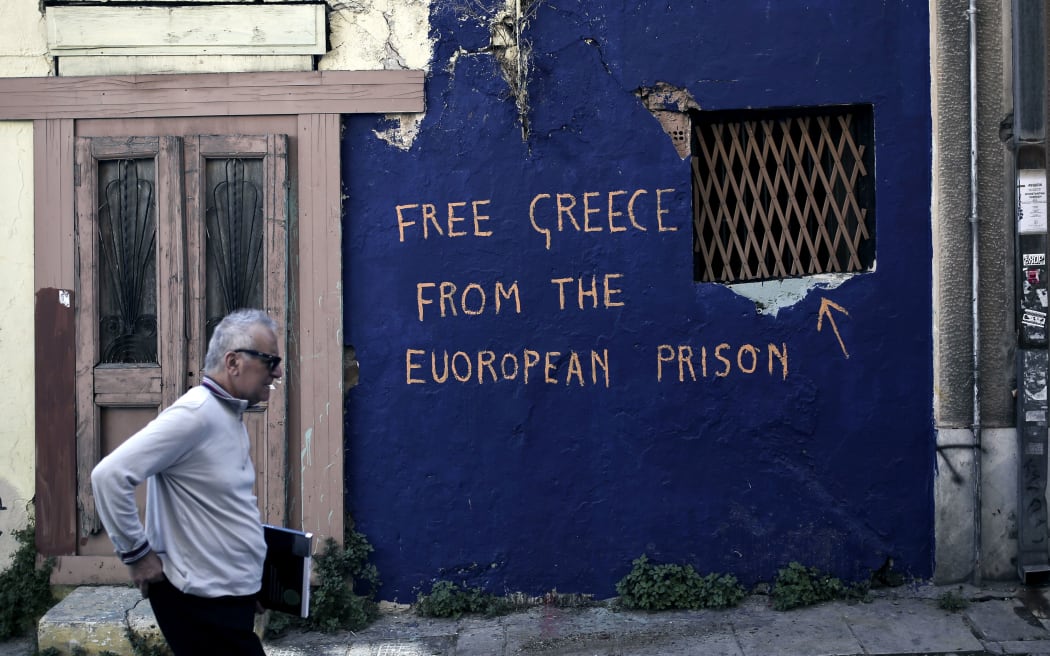
Anti-austerity graffiti on an abandoned house in Athens. Photo: AFP
- Reuters, BBC
